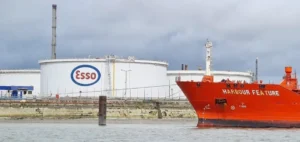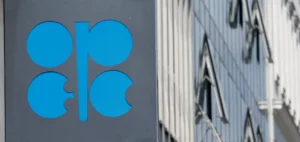The EU and the UK no longer import as much Russian crude as they did before the war in Ukraine. Imports fell to 1.7 million barrels per day in August from 2.6 million bpd in January. However, according to the IEA, the EU remains the largest market for Russian crude.
In fact, the sanctions against Russia explain this drop in imports. The UK no longer imports Russian crude, and the EU will ban imports from December. Thus, the EU turns to other partners. The United States replaces nearly half of Russian shipments, and Norway one-third.
The EU looks to new partners
In fact, the United States could become the main supplier of crude oil to the EU and thus overtake Russia. According to the IEA, U.S. crude imports to the EU were only 40,000 bpd lower than Russia’s in August. Before the war, they were 1.3 million bpd. On the Russian side, in addition to the EU, crude oil is sold in China, Turkey and India.
The EU must continue its efforts to completely replace Russian crude. In sum, it must replace an additional 1.4 million bpd. According to the IEA, 300,000 bpd could come from the United States and 400,000 bpd from Kazakhstan. In addition, the EU can count on Norway. The Johan Sverdrup field is expected to produce more crude in the fourth quarter. Moreover, the crude oil it produces is very similar to that of the Russian Urals.
However, the IEA warns Europe that this will not be enough. Thus, it is wise to look to the Middle East or Latin America. It should be noted, however, that Russian crude oil can still be imported. Indeed, the sanctions exclude some landlocked refineries.
A dependence on Russian crude oil
Dependence on Russian crude varies among EU countries. For example, Germany, Poland and the Netherlands were the largest importers of Russian bullets last year. Nevertheless, these 3 nations have the possibility to import crude oil by sea. This is not the case for landlocked countries. This mainly concerns Eastern European countries such as Slovakia and Hungary. These states have few alternatives.
Also, this dependence is explained by the presence of Russian companies like Rosneft. These companies control, in fact, some of the largest refineries on the old continent. For example, Russian crude flows increased month-on-month to Italy and the Netherlands. In these countries, Lukoil owns several refineries.
In response, Germany has taken control of the Schwedt refinery owned by Rosneft. The refinery supplies some 90% of Berlin’s needs. At the same time, Italy hopes to find a buyer for the ISAB refinery in Sicily. The latter, owned by Lukoil, represents 1/5 of the country’s refining capacity.






















